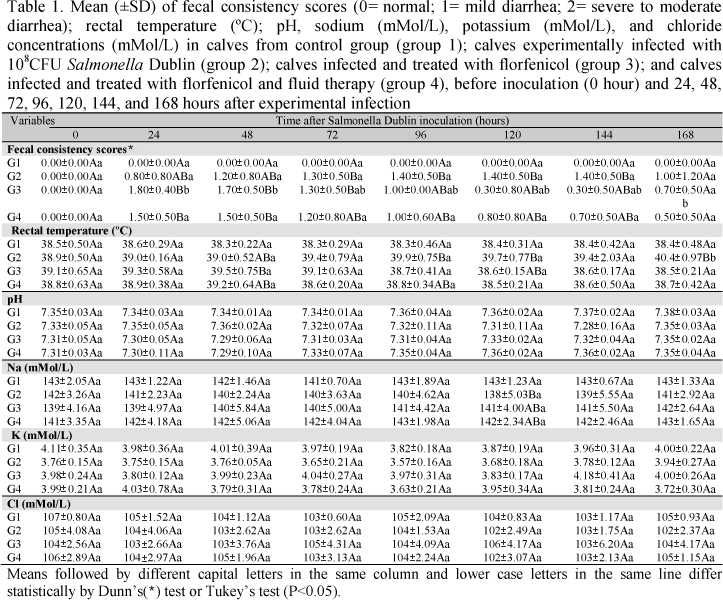The efficacy of florfenicol associated or not to intravenous fluid therapy for treatment of Salmonella Dublin-infected calves was determined. Twenty-four healthy 10 to 15-day-old Holstein calves were randomly allotted into four groups, with six animals each: control (group 1); infected with 10(8)CFU Salmonella Dublin and not treated (group 2); infected with 10(8)CFU Salmonella Dublin and treated with florfenicol (group 3); and infected with 10(8)CFU Salmonella Dublin and treated with florfenicol associated to fluid therapy (group 4). All animals were submitted to physical examination just before inoculation and every 24 hours, during seven days after experimental infection. Rectal swabs and blood samples were collected for Salmonella Dublin isolation and pH and blood electrolytes determination. The experimental infection with Salmonella Dublin induced clinical signs of salmonellosis, such as diarrhea and fever, and caused reduction in blood concentrations of pH, sodium, potassium and chlorides. The treated calves showed good clinical recovery, and the group treated with antibiotic in combination to fluid therapy presented a faster and more efficient correction of the hydro-electrolyte balance.
calf; Salmonella Dublin; florfenicol; lactated Ringer's solution





